Eight years ago Oyv and I took a short holiday in Georgia (the country, not the state) and I’d been meaning to go back ever since. The details had gotten a bit fuzzy and I couldn’t even remember exactly why I liked this former SSR country so much but whenever I thought about it I just got all sentimental and wanted to jump on a flight to Tbilisi.
And now here I was right in the neighborhood so to speak, having disembarked the Professor Gul in Azerbaijan after crossing the Caspian Sea.
I hadn’t been in Baku and online for ten minutes when Oyv WhatsApped me. It seems my friends and I weren’t the only ones obsessed with the Professor Gul and its location on the Caspian – Oyv had been monitoring our position during the crossing on a marine traffic website and he knew I should be back on land. It’s nice when someone’s looking out for you, across all those miles and even the sea.
After a week of traversing Azerbaijan I arrived at the Georgian border in another of the mini-busses on which I seem to spend inordinate amounts of time these days. Passport checks and baggage xrays, a quick walk through a tunnel-like path from one country into the next, and I was back in Georgia.
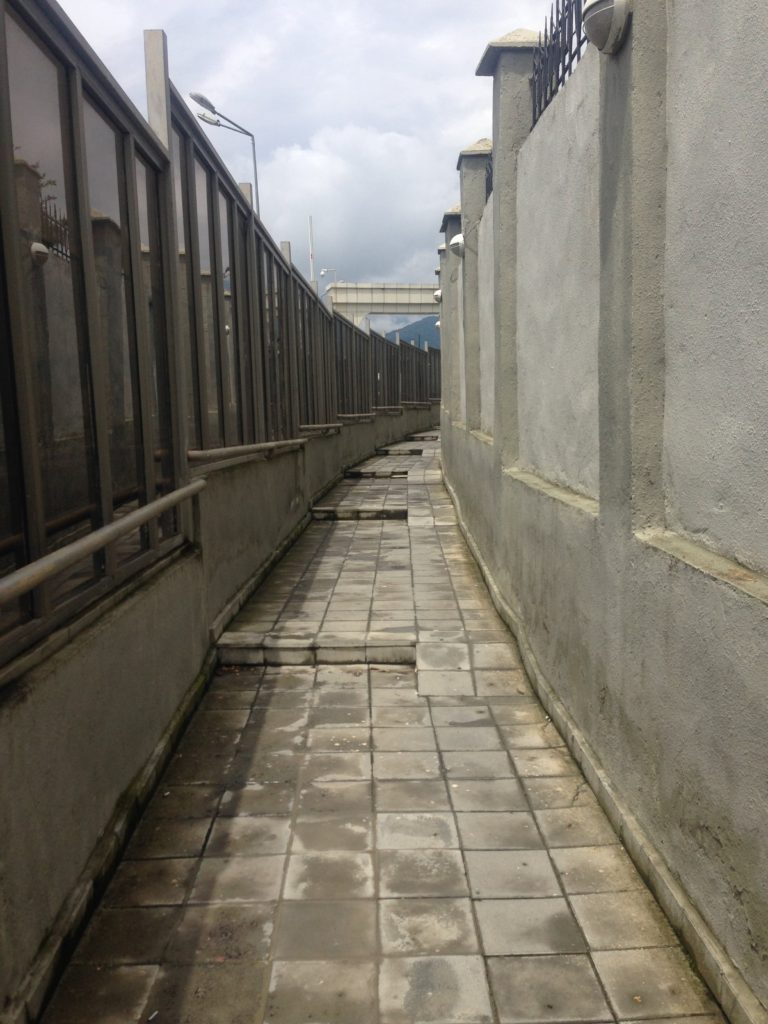
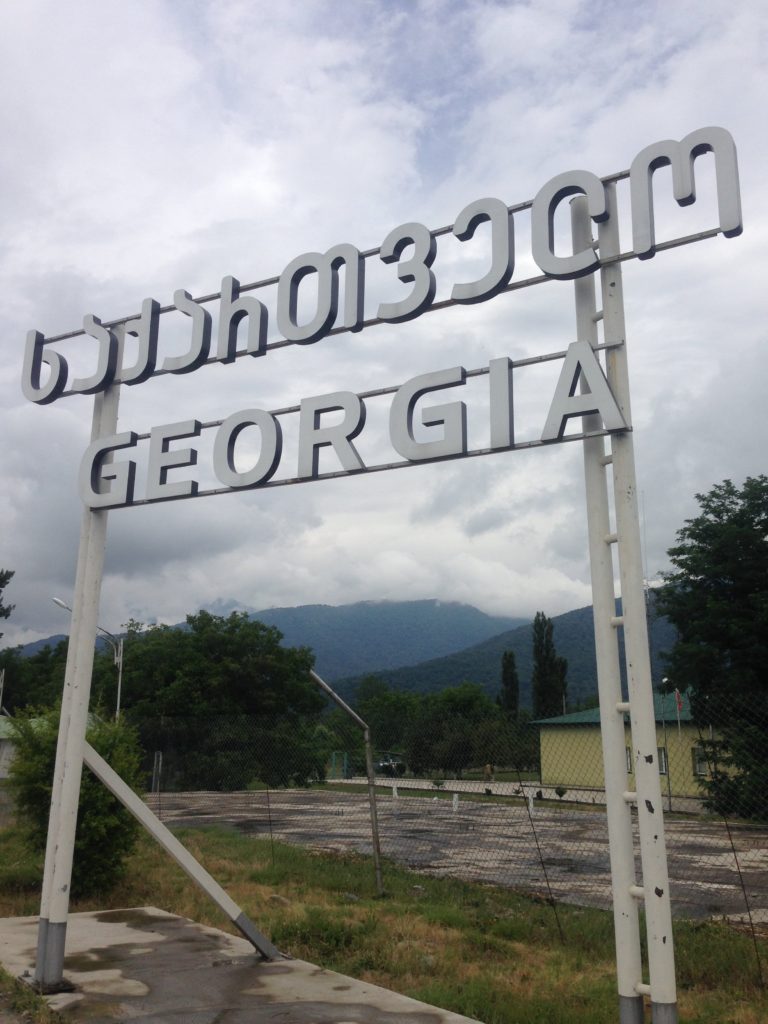
I’ve travelled a lot lately, and a long way. I was ready to relax for a while without any plans to hike up something steep or organise weird modes of transport or navigate incomprehensible cultural nuances or undertake 30 hour long train-and-ship rides: in other words, I was looking for some normal vacation time and I felt like Georgia was the place to find it.
And I was right. Let me sum up my time in Georgia with two words: Wine and Food. Actually Sulphur and Stalin both come to mind as well, but not in such excessive amounts as the first two things.
As my next marshrutka (mini-bus) climbed high into the hills towards Sighnaghi, my expectations climbed with it. I remembered Sighnaghi; it’s an adorable little town with twisty cobbled streets, ancient fortifications and orthodox churches, and panoramic views of the Caucausus mountains.


I moved into a family guesthouse where the owners Nika and Luisa continually placed pitchers of wine and plates of salty cheese and pastries on the table in the garden and encouraged me to consume both in large amounts. This made me pretty happy after weeks of either not drinking anything at all, or drinking shots of vodka.
Moving on to Telavi I stayed at another guesthouse with a hospitable owner. Giorgi is 70 years old and usually hosts Russians – he doesn’t speak English.
‘My Dad is really nervous’ said Giorgi’s daughter over the phone when he called her to translate. ‘He wants to know if your room is comfortable and he’s worried that you are hungry’, she went on, and added that her Dad wanted to make sure I had a good meal. Sure enough, Giorgi disappeared into the house and when he emerged again in a buttoned shirt tucked into khaki trousers we went out for dinner and a walk in the park.
Georgia is one of the world’s oldest wine regions: people have been cultivating grapevines here for at least 8000 years. Of course, if drinking wine in the afternoon at your guesthouse or at sunset in a little restaurant clinging to the old city walls doesn’t do it for you, you can always go straight to the source. Telavi is at the heart of Georgia’s wine industry and there are plenty of vineyards to visit.
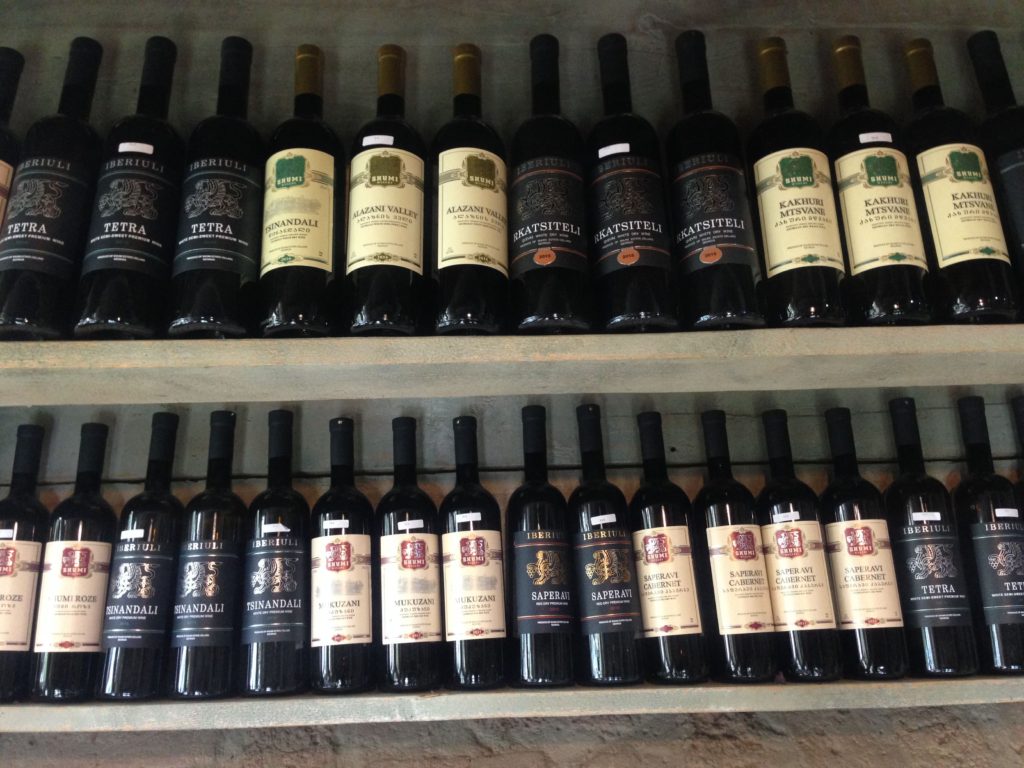
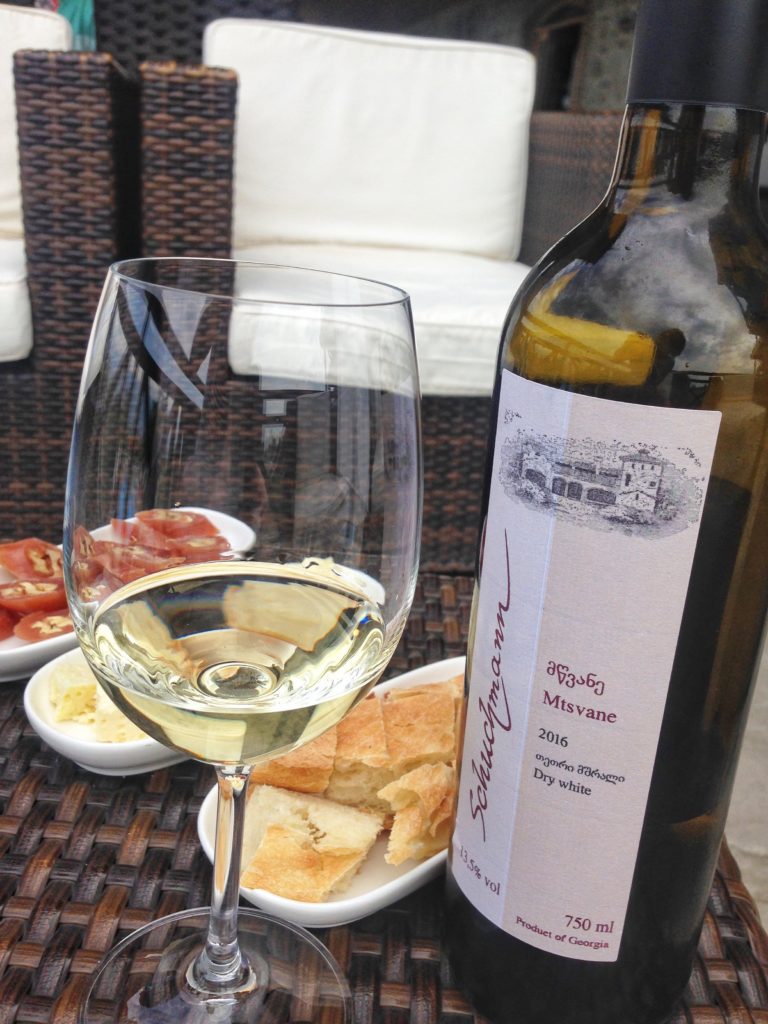

I checked out two, Shumi and Schuchmann, sampling their chacha – a local spirit made from grapes – while I was at it.
And then there’s Georgia’s capital, Tbilisi. The Old Town is just as I remembered it, all skinny winding streets and ramshackle buildings tumbling down an impossibly steep hillside.

My friends Matt and Sherry from the Caspian crossing were already there, in an apartment they’d booked. There was space for me too so I moved right in.
A popular legend has it that in the 5th century the King was out hunting in the forest when his favourite falcon fell into a hotspring and was boiled alive. Either in honour of the bird or out of a real liking for hotsprings, the King cut down the forest and founded a city, calling it Tbilisi which literally means ‘warm place’. The sulphurous thermal waters gave rise to plenty of bathhouses and the tradition survives and thrives today – taking a bath is high on the list of things to do in Tbilisi, so one evening we went to check out a few bathhouses.
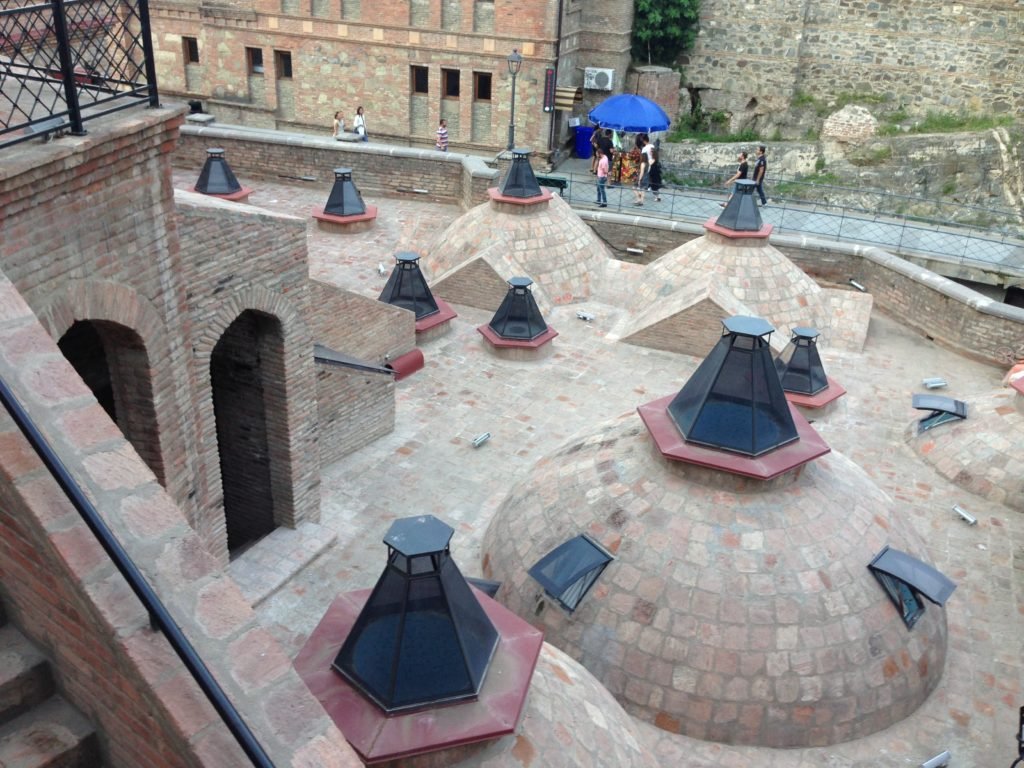
There are different options: you can use the public baths or you can book a private room for yourself and your friends and that’s what we did, once we settled on Orbeliani bathhouse. These rooms usually include a sitting area and washroom, showers, a sauna (if you pay extra), both a hot and a cold pool, and a marble slab for scrubbing and massage.
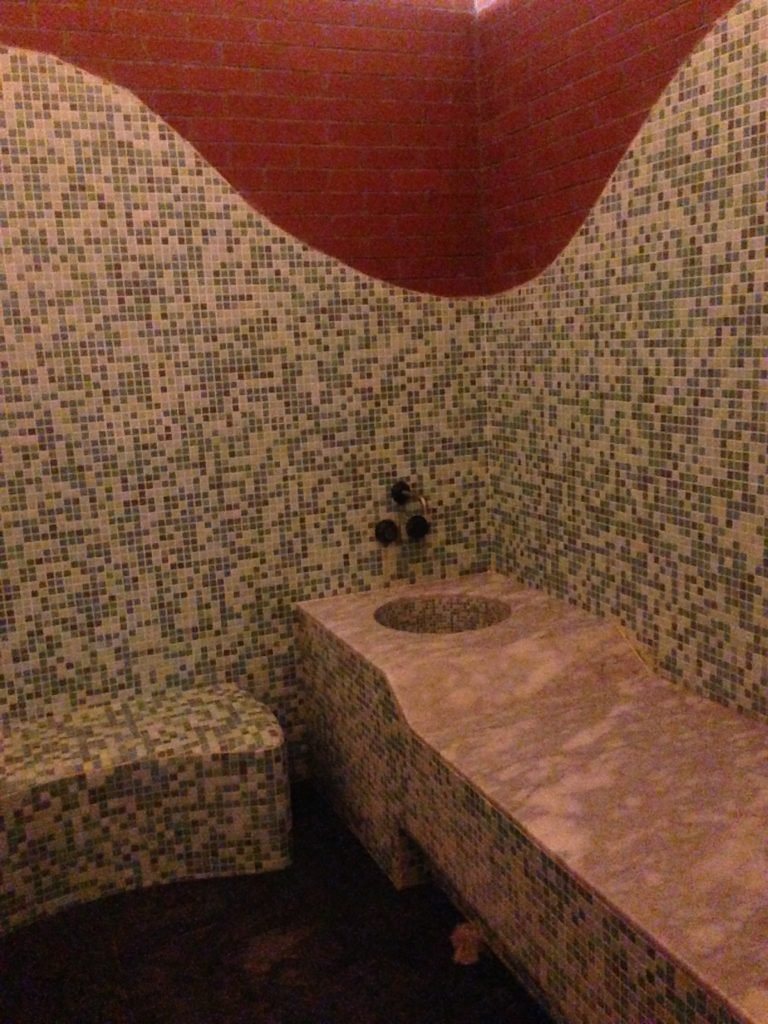
A private booking is typically for an hour and we spent the time going between the two pools and the sauna. We’d also each paid extra for a scrub. I’d been to the baths before and hadn’t forgotten this experience. ‘There goes my tan’ I thought to myself when it was my turn to lie on the marble slab and a woman approached me wearing what appeared to be a mitten made of steel wool.
If you’re curious about Tbilisi bathhouses in general and scrubs in particular, here are some things you should know:
You can of course wear a swim suit but being naked makes more sense – after all, it’s a bath. Having sloughed off the top layer of your skin with the scrubbing mitt, your attendant will fill something like a pillowcase with soapsuds and slap you with that for a while, intermittently pouring buckets of hot water over you to rinse while you cling to the end of the marble slab with your fingertips in an effort not to slide right off with all the suds and the next tidal wave. The finale usually involves the attendant slinging a bucket of cold water at you, just in case you got too comfortable.
And there you are! – slithering off the marble slab all clean and pink and shiny and showing off a new layer of skin you didn’t even know you had underneath the weight of all that dead skin you’ve unwittingly been carrying around for perhaps years or at least, your current trip.
As well as taking baths with your friends or strangers, you can also learn (almost nothing more) about Josef Stalin – his home town, Gori, is an easy day-trip from Tbilisi. So one morning I left the apartment and took the metro to Didube, a chaotic bus-station-and-market, where I caught a marshrutka to the town whose only claim to fame is being the birthplace of one of the twentieth century’s most infamous tyrants.
As the marshrutka cruised down Gori’s main drag, Stalin Avenue, we passed Stalin Park (I’m not making this up) and I got out near City Hall.

A six meter high statue of Stalin once stood in front. It was finally removed in 2010 in the middle of the night to avoid protest – many residents of Gori still see the soviet dictator as a legendary Georgian first and foremost.
The museum at the other end of the park contains an extensive array of portraits and photographs from Stalin’s lifetime.



They also have many of his belongings – the furniture from his first office at the Kremlin, a dress uniform and so on.

And there’s the museum’s showstopper – ensconced in a shrine-like display, his deathmask cast in bronze.
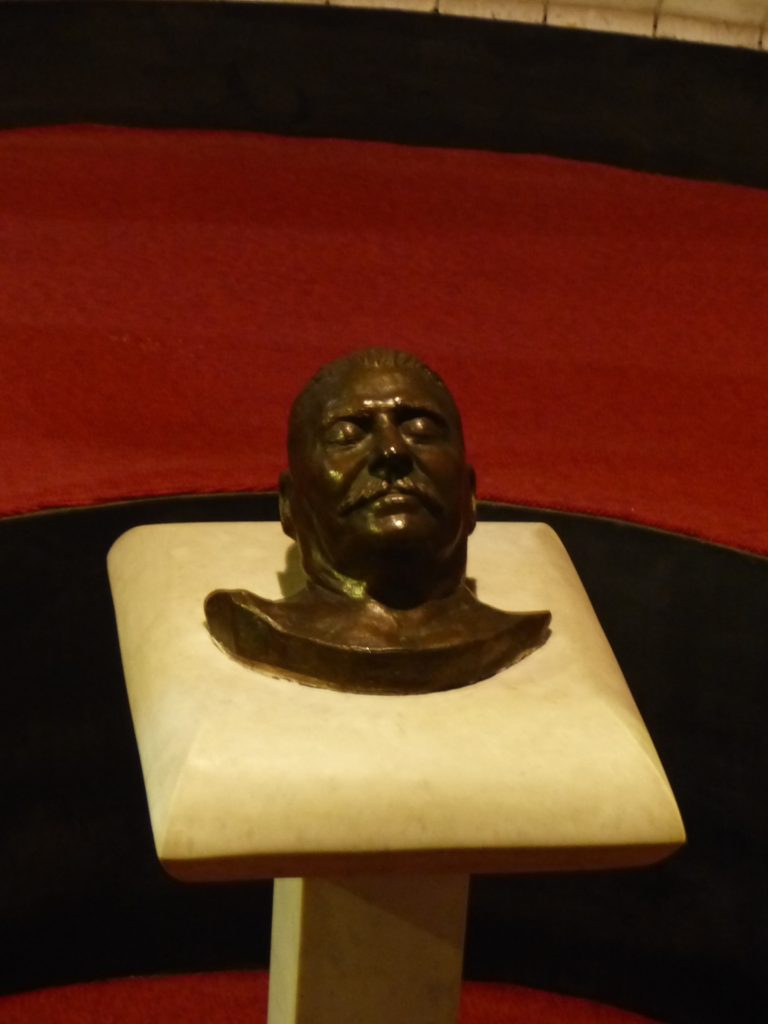
The English tour I went on explained a lot about the photos and the people in them, and Stalin’s early years and family life, but didn’t really touch on the atrocities he has gone down in history for.
The house Stalin was born in in 1878 stands in the grounds with original furniture inside donated by his mother.

Since he was afraid of flying Stalin travelled around Europe by train – his personal carriage is now parked outside the museum too.

I climbed aboard and walked the length of it, peering into each room – it gave me a strange feeling.


For those visitors seeking a conversation piece (or actively looking for trouble), the museum even has a gift shop selling souvenirs like T-shirts and coasters.

The last time I was here there was a bottle of sparkling wine available with Stalin’s face on the label but someone must have bought it between then and now.
Back in Tbilisi I picked up deli snacks for dinner – things like grilled peppers and baked aubergine rolls filled with walnut paste and spicy bean salads. I sampled some wine while I was at it – even supermarkets hold free wine-tastings here.
So far I’d pretty much retraced my steps in Georgia – that’s something I don’t usually do. It was fun, revisiting these places I’d been only once before but remembered so warmly. Now I’ll go back to thinking about it sentimentally and eyeing weekend flights to Tbilisi, until the next time I’m in the neighborhood.
Read More
For more of my adventures (and misadventures) in Georgia, check out the rest of my stories from the road.
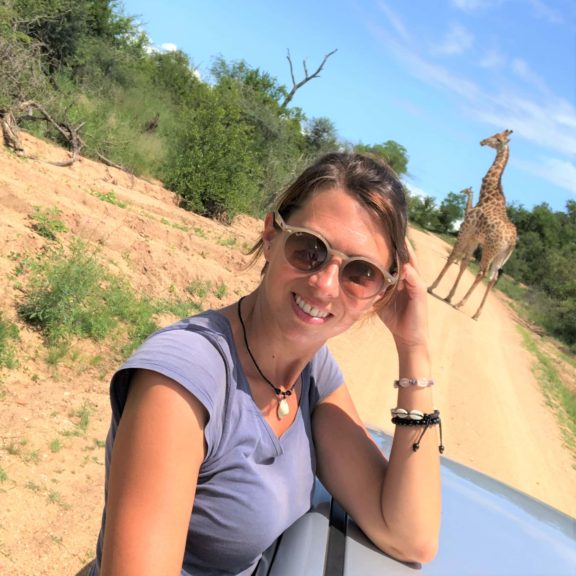
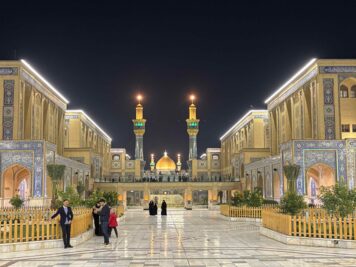
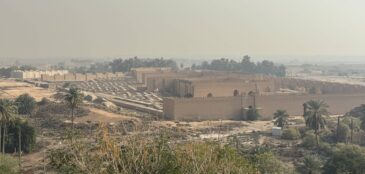
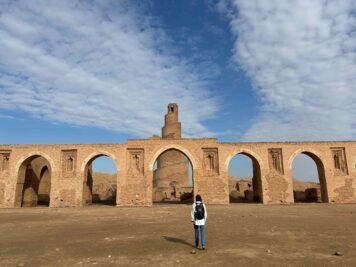
This Post Has One Comment
Oh my, our bathhouse in Marrakech was not that rough, was it? Sounds delightful, though, to be rid of all that dead skin 🙂
Stalin Tshirt, lol
Trev just got me an ed Sheeran one. You’ve really got to love someone to put their pic across your chest